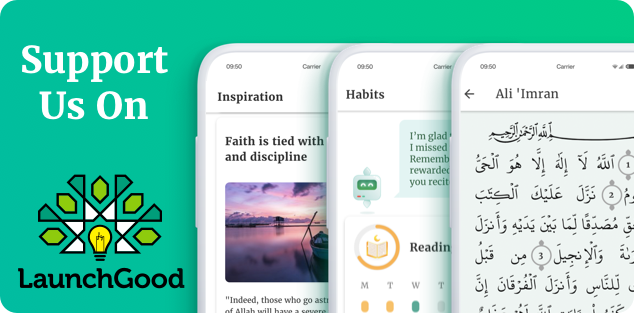Our very first parents – Adam and Hawaa – were evicted from the garden because of it.
The inner flames of desires are fanned because of it.
Wealth is sought at any expense in order to satisfy it.
Diseases flourish because of what is put inside of it.
Introducing the stomach.
In a Hadith which is to be remembered and shared around the dinner table at the sunset of each evening of Ramadan, the Prophet PBUH said:
ما ملأ آدميٌّ وعاءً شرًّا من بطنٍ ، بحسبِ ابنِ آدمَ أُكْلاتٍ يُقِمْنَ صُلبَه ، فإن كان لا محالةَ ، فثُلُثٌ لطعامِه ، و ثُلُثٌ لشرابِه ، و ثُلُثٌ لنفَسِه
“There is no vessel that man fills more terribly than his belly. Several morsels of food in order to keep his back straight should sufficient, but if he insists on eating more, then dedicate a third of the belly for food, a third for drink and a third for breathing.”
(At-Tirmidhi)
A friend of mine told me that he doesn’t feel like he has eaten properly if he is still able to move afterwards. I also remember a case where a brother was invited to an all-you-can-eat buffet where he ate till until he needed a team paramedics to carry him out of the restaurant on a stretcher!
Amusing? Perhaps, but not to Abu Juhaifa.
Abu Juhaifa is the name of a companion who narrated that the Prophet PBUH said,
إِنَّ أَكْثَرَ النَّاسِ شِبَعًا فِي الدُّنْيَا أَكْثَرُهُمْ جُوعًا يَوْمَ الْقِيَامَةِ
“Those whose bellies are fullest today will be the hungriest on the Day of Judgement.”
(Narrated by AlHaakim)
After hearing this Hadith, Abu Juhaifa did not eat to his fill till the day he died.
We wonder why our eyes struggle to shed tears in Allah’s thought, why those evening prayers of Ramadan seem so long, why our hearts at times feel so hard, and why our enthusiasm to set visions and create strategies for our Hereafter in this month is so weak; Our attention is so obsessively focused on our bellies.
Imam Ahmad was asked:
هل يجد الرجل من قلبه رِقَّةً وهو شَبع ؟
“Can a person whose belly is full experience a soft heart?”
He replied: ما أرى
“I do not believe so.”
Luqman Al-Hakeem said to his son,
يا بني إذا امتلأت المعدة نامت الفكرة وخرست الحكمة وقعدت الأعضاء عن العبادة
“O my son, when one’s belly is full, his thoughts are put to sleep, his wisdom is silenced and his drive to worship Allah is paralyzed.”
Perhaps it's worth noting that scientists say that the organ which is fastest to decompose after death is the stomach. Despite this, one of the main reasons why we cross Allah's lines is to satisfy that exact same organ; The stomach!
Surely it isn’t wise to limit your potential in Ramadan, as well as in the Hereafter, for an organ that will be the very first to bid you farewell.
The believer eats, drinks and enjoys the Halaal of what Allah has provided, but whilst doing so, s/he is always haunted by the prospect of being told on the Day of Reckoning:
أَذْهَبْتُمْ طَيِّبَاتِكُمْ فِي حَيَاتِكُمُ الدُّنْيَا
“You have exhausted all of your pleasures during your worldly life ..”
(Al-Qur’an, 46:20)
Subscribe for Updates
Original content used with permission from:






